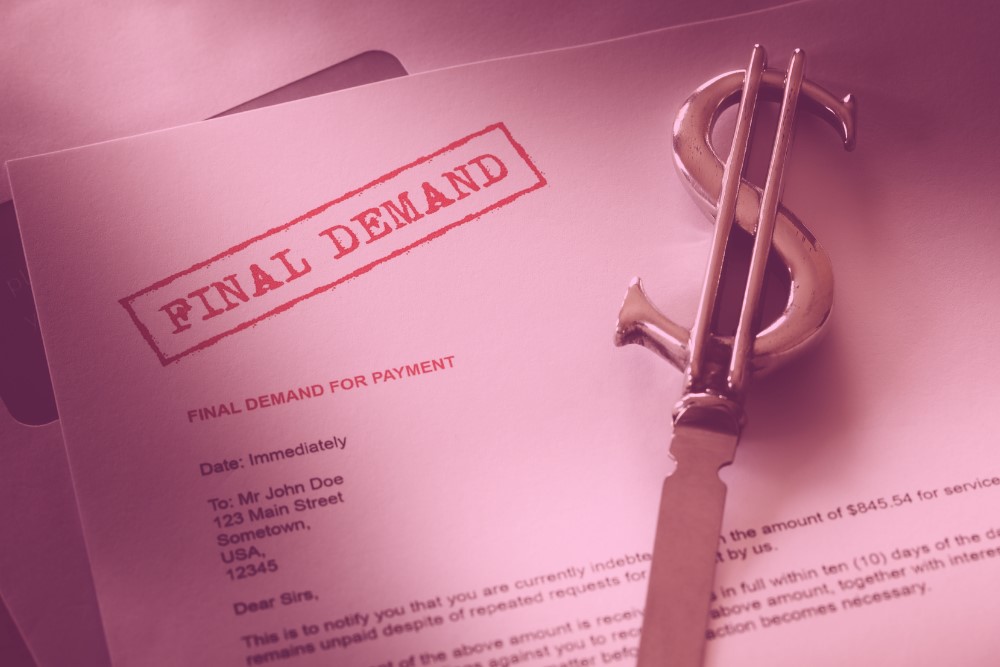A ‘letter of demand’ is the legal term for a letter that is sent to a party that owes another party money. A letter of demand is usually sent as the final step in attempting to recover funds that are owed prior to commencing legal proceedings. This page deals with the role letters of demand play in civil proceedings.
What is in a letter of demand?
A letter of demand states what is owed, why it is owed, and when it needs to be paid. It specifies a timeframe during which payment is required and usually contains a warning that legal proceedings will be started if payment is not received by that date.
While it is sometimes necessary to send a letter of demand, doing so can damage a working relationship. It is therefore important to consider what one’s priorities are before sending a letter of demand.
Where accounts are unpaid
The most common situation where a letter of demand is used is where a party has failed to pay money that they owe. When this happens, the party that is owed money should always send one or two polite reminders prior to resorting to a letter of demand.
A reminder letter gives the debtor time to pay the invoice and accords them the benefit of the doubt as their failure to pay may be a simple oversight. They may also have temporarily had a shortage of funds or there may have been a misunderstanding about the terms of the agreement.
It is always better to obtain payment without sending a letter of demand as this preserves the business relationship.
Where goods are faulty or services are not provided
A letter of demand may also be sent where a party has paid for work that has been done inadequately or for a service that has not been provided or that has been provided inadequately. For example, if you pay a tradesman to install a bath, which starts leaking a few days later, you could request them to return and fix the job. If they fail to do so, you could send a letter of demand requiring them to perform their obligations.
Where a party sends a letter of demand in this situation, it is advisable to summarise the law and make it explicit how the other party is in breach of their obligations. It is also clear to spell out exactly how you want the other party to remedy the situation. This may be refunding money that has been paid or by completing the work. If you are seeking a refund, you must attach evidence that you made payment.
Alternative dispute resolution
Before sending a letter of demand, it may be appropriate to invite the other party to participate in some form of alternative dispute resolution (ADR). ADR allows parties to try to resolve a dispute in a way that is acceptable to both of them and is more likely to result in the parties remaining on friendly terms.
Letters of demand must be accurate
If you decide that you do need to send a letter of demand, you should ensure that everything that is stated in the letter is accurate. If the other party does not comply, you may proceed to commence legal proceedings. If you do so, you will need to include the letter of demand as an attachment to your statement of claim. It is therefore crucial to make sure that all of the information in the letter is factually correct and consistent with your legal claim.
Letters of demand must be complete
A letter of demand should include the following:
- Details of the amount of money or the goods or services that are required and the date they are demanded to be provided by;
- Documentation such as invoices, contracts, reminder letters and and any relevant correspondence;
- Details of any legal action the party intends to take in their demands are not complied with.
The letter should be signed and dated and should be clear, polite and professional.
The party sending the letter should keep a copy for their records as they will need it if they initiate legal proceedings.
Sending letters of demand
It is a good idea to send a letter of demand by post as well as emailing it to the other party to ensure that the other party receives it. If you have stated in the letter of demand that you intend to take legal action if the demand is not met by a specified date, you do not need to wait for a response after that date before initiating proceedings.
If you require legal advice or representation in a civil matter or in any other legal matter, please contact Taylor Rose.




